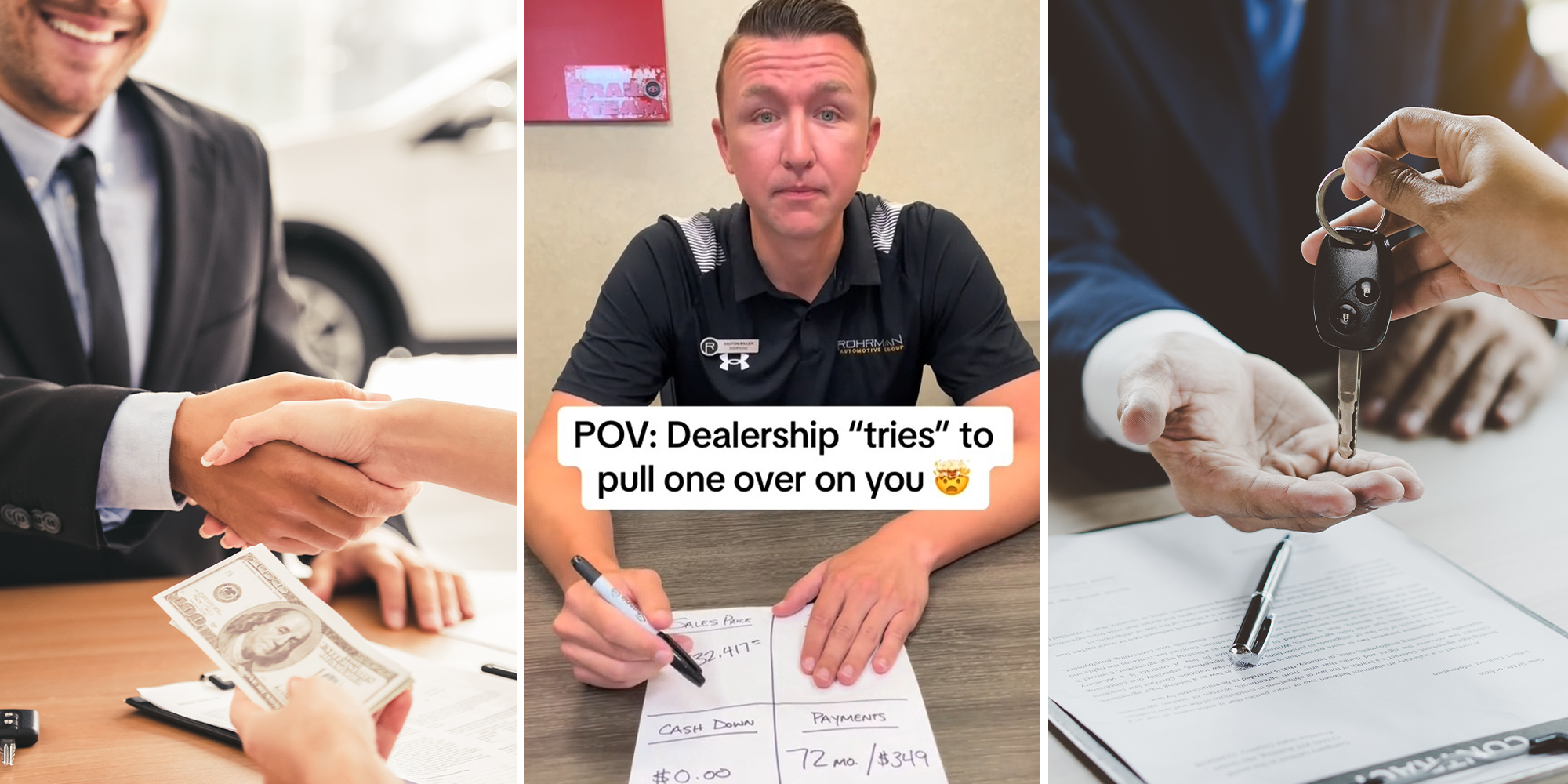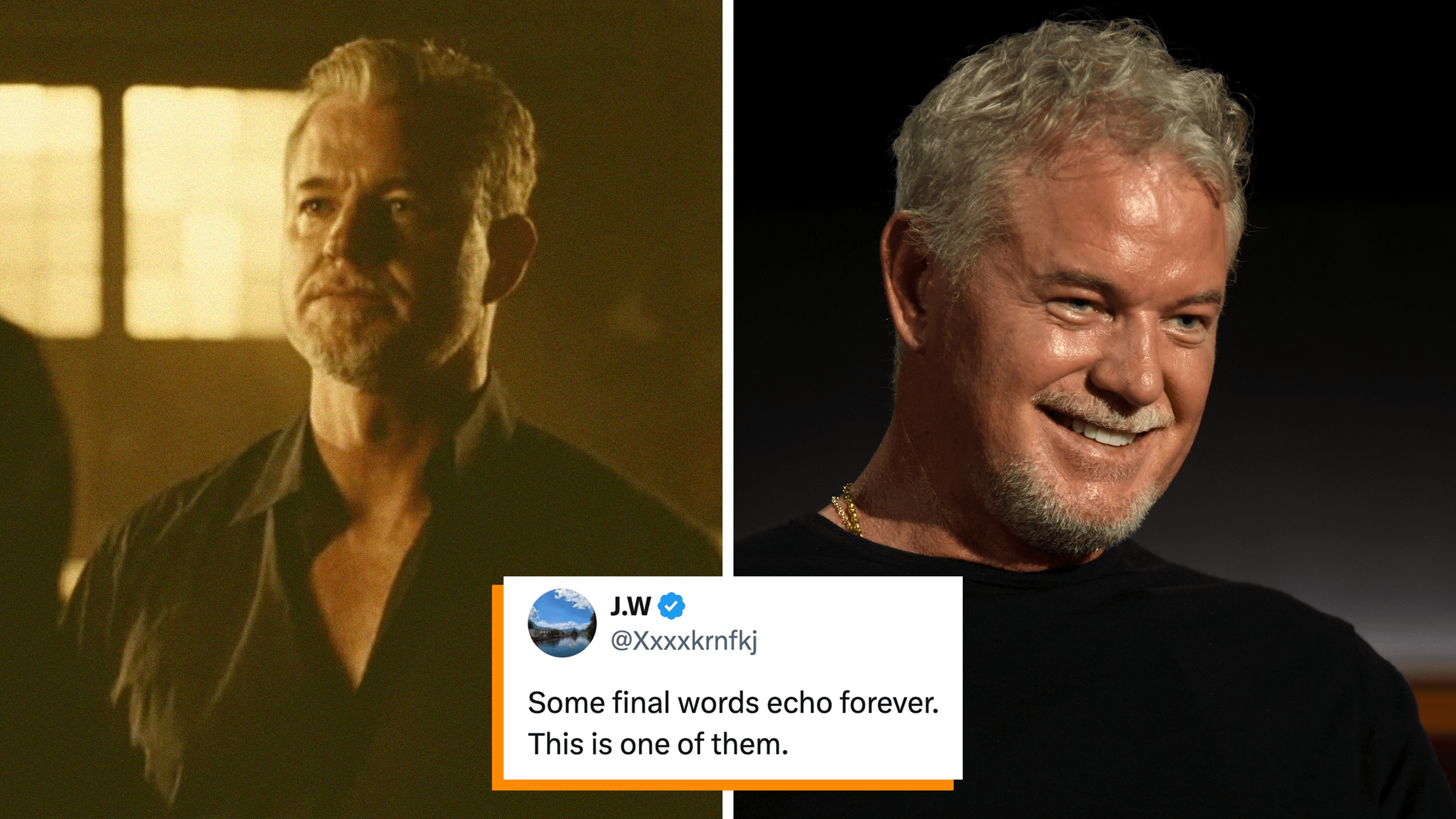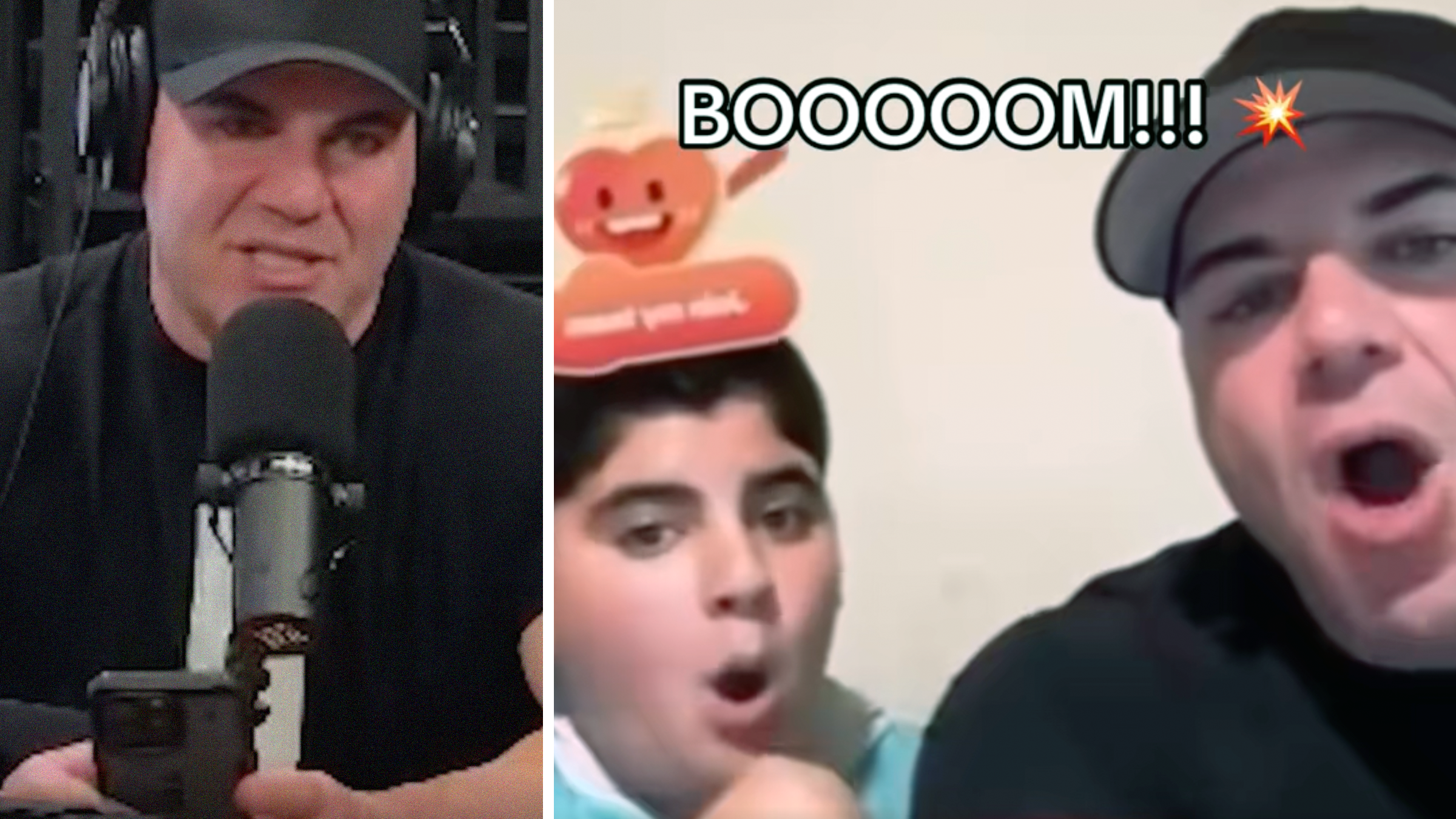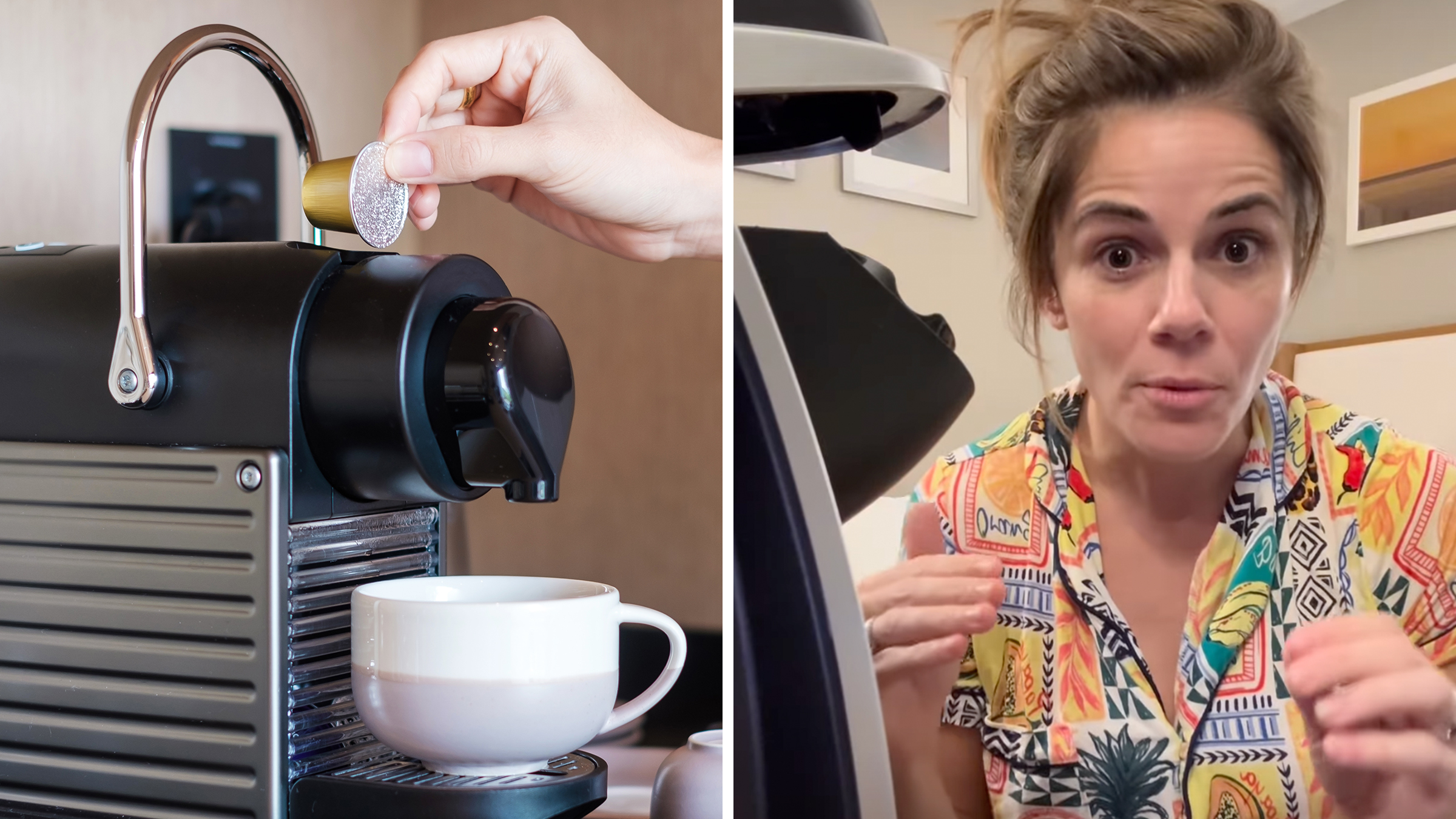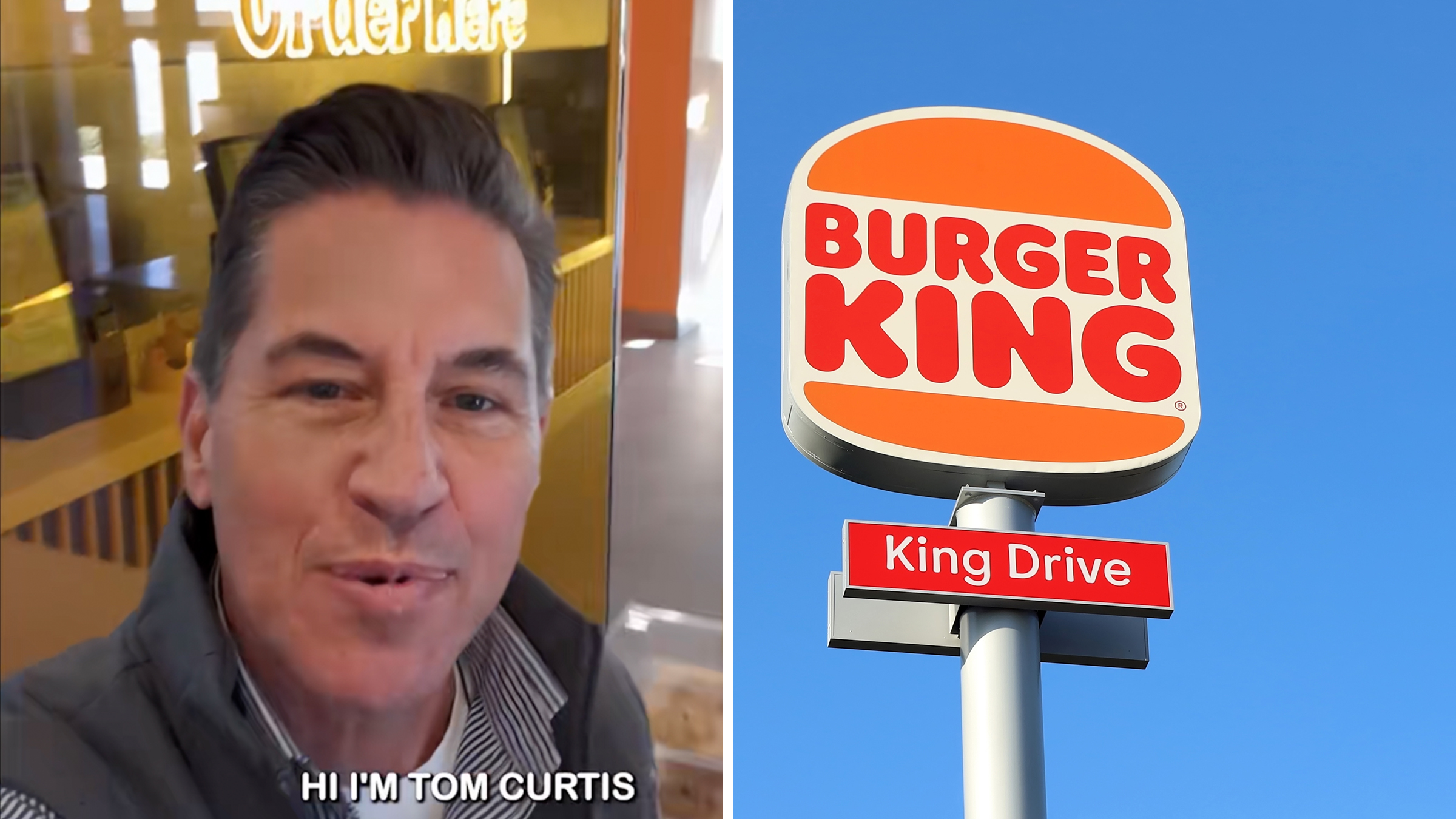Some car dealerships are hiding the value of your trade-in by lumping it into your monthly payment. And they're just hoping you won't ask any questions, which could potentially cost you thousands of dollars, depending on the car you're trading.
Dalt Miller (@daltmiller) breaks down how some car salespeople try to pull this con in a viral clip that's garnered over 1.9 million views. Thankfully, however, he demonstrates how folks can combat this scam in a skit.
The hustle
The clip begins with Miller sitting on a table. There's a sheet of paper in front of him and he's divided it into 4 different sections with a pen. In one portion, he has "Payments 72 mo. / $349. Then, in the square right beside it, he wrote the "cash down" amount which is a cool zero bucks. He points to the sheet of paper with his pen as he begins to act out the skit.
According to a text overlay in the video, it's one that ends with a dealership screwing over a prospective buyer. "POV: Dealership 'tries' to pull one over on you," the on-screen text reads.
Miller says, "All right we were able to accomplish everything that you wanted."
He points to the upper left square, which was previously covered by his hand. This one indicates the total sale price of the car the buyer requested. "32 sales prices. Zero down. 72 months, $349 a month."
After he says his piece the customer then replies. They're played by the person behind the camera and sound absolutely ecstatic with the news. "Whoa how'd you get my payment so low?" they say.
The salesman replies, "It was your trade. Thing was super nice we were able to calculate it at $349."
Again, the buyer is very happy to not be forking over a large cash payment upfront. However, as the text overlay at the top of the video indicates, he may be celebrating too soon. "Whoa that's awesome, no money down?"
@daltmiller Has this ever hapoened to you when buying a vehicle??#carsales #carsalesman #sales #carbuying
♬ original sound - MillerTime
Follow-up questions
At this point in the video, a shift occurs in the conversation. While the salesperson repeats that they have "$0 down just like [they] asked," the customer makes a vital query. "You probably used my trade in as the money down."
The salesperson agrees, but swallows a bit after the customer correctly speculates about his vehicle being used as a down payment. But it's the next question the buyer asks that really cuts to the heart of the matter: "How much was my trade what'd it come back at. I mean, this is awesome!"
Despite being asked the straightforward question, the salesperson dodges it instead. He takes the opportunity to point to the monthly payment square on the sheet, again.
"Yeah I mean like I said we're full transparency," he claims. "It's calculated right there in the monthly payment. 72 months $349."
But the buyer isn't letting the matter go so easily and he repeats his inquiry yet again. After some back and forth, the seller finally reveals the number.
The hidden number
Next, the seller points out the salesperson is covering up the upper right square with their fingers. "Is there something else behind your hand?" they flat-out ask. Reluctantly, the salesman reveals the trade-in value the dealership gave him for his vehicle was a measly $17.00.
Is it better to sell privately?
Selling privately is the general consensus when it comes to offloading a used vehicle when you're ready for a new set of wheels. Cars.com writes that "generally, selling privately carries a financial advantage." However, the online car search tool states that trade-ins are generally more convenient solutions.
There are also popular used car-buying businesses such as Carvana and Carmax that make speedy offers as well. Some sellers, like this TikToker, swear by CarMax, stating that they were given above Kelley Blue Book value for their used vehicle.
Many car-buying commentators/experts caution against letting a salesperson know upfront if you have cash down or a trade-in. The reason is simple: Information wins negotiations.
Negotiate out-the-door price first
According to Cars Direct, the first order of business every single prospective car buyer should attack is the selling price. You want to know what the dealership is going to give you the car for. This request may be met with some resistance by the seller. Or perhaps they'll initially acquiesce only to redirect the conversation to talk of monthly payments.
Your goal is to get that total number locked in and placed on a buyer's order. Once you've accomplished that, "you can tell them...you have a vehicle...you're looking to trade in."
The outlet went on to state that oftentimes dealerships will over-inflate the value of a trade-in. This is because they're not giving you a good deal on the car you're purchasing from them.
TikTokers hate the four-square
One commenter who replied to Miller's video shared their vitriol for the foursquare breakdown.
"If you come back to me with a Foursquare, I am immediately walking out the door," they stressed, "there's absolutely nothing you can do to get me to turn around."
The Toyota salesperson denied using them in his day-to-day at the dealership, stressing it was just for the TikTok. "Agreed! We don’t use them just for the skit," he replied.
Another thought the practice of breaking down payments in months was a lowkey shady trick as well. "I love the '72 months' because if you heard 6 years you'd bounce and they know that," they penned.
Someone else wrote, "When my husband bought his new truck he waited to tell them he had a trade in until after they agreed upon a price."
Miller remarked that this tactic was a "great way to negotiate."
And then there were others, like this TikToker, who said they were offered a laughable amount of cash for their trade-in. "They offered me $500 to trade in my 06 Corolla, I said no and sold it personally for $2500."
The Daily Dot has reached out to Miller via TikTok comment.
Internet culture is chaotic—but we’ll break it down for you in one daily email. Sign up for the Daily Dot’s web_crawlr newsletter here. You’ll get the best (and worst) of the internet straight into your inbox.
